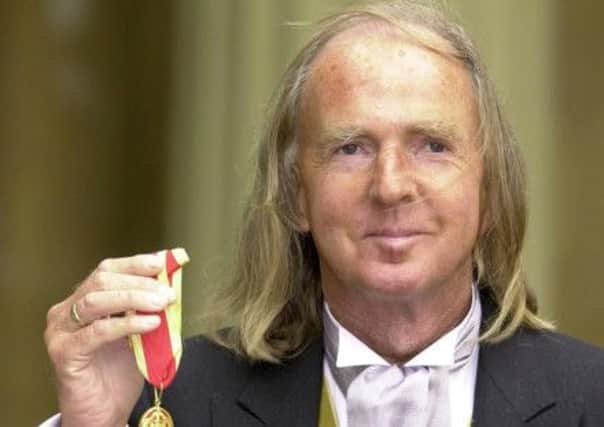Obituary: Sir John Tavener, composer


John Tavener’s music was inspired by his own deeply held religious beliefs – there is a sense of inner calm in his compositions, which mirrored his own personality and reflected his contemplative and serious manner. His music was haunting, entrancing and stimulating – as if, throughout his life, Tavener was on a deeply personal spiritual quest.
His best known work – which brought him to an international audience – was Song for Athene, which was broadcast to a television audience of 2.5 billion in 1997, when it was played at the funeral of Diana, Princess of Wales. Another widely regarded work was The Protecting Veil, which was one of the highest selling discs in the classical charts in 1989.
Advertisement
Hide AdAdvertisement
Hide AdTavener also composed a short work for the opening of the Millennium Dome at Greenwich, London, on New Year’s Eve 2000, and an oratorio (Fall and Resurrection), which was dedicated to the Prince of Wales. It had its first performance in St Paul’s Cathedral in 2000, with the Prince in the congregation.
Sir Peter Maxwell Davies, the Master of the Queen’s Music, described Tavener’s death as “a great loss”. From his home in Orkney, Sir Peter said: “John’s contribution to spiritual music was immense, and his death is a great loss to the world of spiritual music.”
John Kenneth Tavener was born in Wembley Park, London, in 1944, where his family attended the Church of Scotland. He was educated at Highgate School and showed considerable musical talent from an early age – indeed he often played the organ at the local church.
In 1962, Tavener studied at the Royal Academy of Music under the composer Lennox Berkeley, while practical assistance came from Rhoda Birley, wife of the painter Sir Oswald Birley. In 1968, Tavener dedicated one of his early works, the cantata The Whale, to Lady Birley. The cantata created a wave of sound and was scored for, amongst other instruments, loudhailers (one of which was voiced on the recording by Ringo Starr), football rattles and amplified metronomes.
In his youth, Tavener was a full member of the Swinging Sixties – driving fast cars, being seen with many beautiful women (including the actress Mia Farrow) and was signed up by the Beatles’ Apple label. Tavener never felt entirely happy with the playboy life style – although he retained a love of cars, food and good wine all his life.
While acting as organist at a Kensington church, he was accepted into the Russian Orthodox Church in 1978 and his music took on an altogether more sincere and spiritual atmosphere.
He provided written instructions with his scores as to how they should be played. His 1995 Tears of the Angels he said should be “at the extreme breaking point of tenderness”, while string quartet piece The Last Sleep of the Virgin, Tavener desired to be “still, quiet and intensely fragile … at the threshold of ability”.
Tavener accepted some high-profile commissions – in 1979, the Royal Opera gave the world premiere of his only opera Thérèse – a large-scale work set against a heavy religious background – which did not find favour with the public and was never revived.
Advertisement
Hide AdAdvertisement
Hide AdIn 1980, Tavener suffered a serious stroke from which he recovered and this further confirmed his religious beliefs. It was in the following year that Tavener made a significant, if controversial, contribution to the Edinburgh Festival. John Drummond, the Festival director, had long been a keen supporter of Tavener’s music and he commissioned the Akhmatova Requiem. It demanded large forces (the BBC Symphony Orchestra under Gennadi Rozhdestvensky and five soloists) but it was neither a success in Edinburgh nor the following week at the Proms.
Tavener himself remained positive about the work: “It is a tough piece by any standards, and Gennadi later premiered it in Moscow where it made a much bigger impression on the audience. I regard the Akhmatova Requiem as one of the peak achievements of my middle life.”
Akathist of Thanksgiving was a much admired work, celebrating the millennium of the Russian Orthodox Church, and the 45-minute soliloquy The Protecting Veil (“the icon in sound”) for cello and strings was premiered at the 1989 Proms and hailed as a masterpiece.
Tavener was an imposing figure, standing 6ft 5in tall, with long blond hair and his face permanently tanned from his months in Greece. His intellect and pious beliefs resulted in him challenging the musical norm, no more so than in his seven hour marathon The Veil of the Temple in 2003. It reflected his universality both as a composer and as a man.
Tavener, who was knighted in 2000, is survived by his wife, Maryanna, whom he married in 1991, and by a son and two daughters.